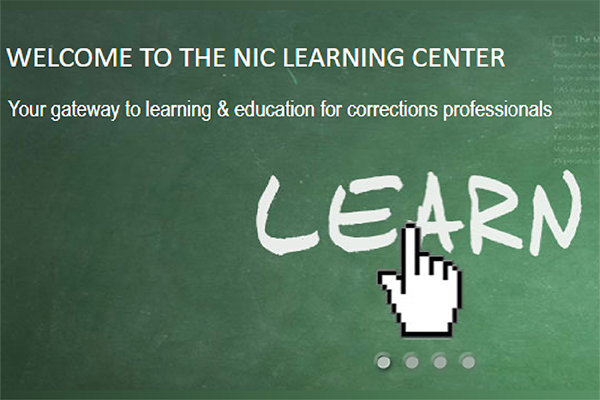
A new training will help probation and parole officers successfully implement core correctional practices (CCP) and greatly impact the community supervision field. CJI designed the “Facilitating Behavior Change With Persons Under Community Supervision” curriculum in partnership with the National Institute of Corrections (NIC).
NIC plans to offer this curriculum nationally to a field that’s already adopting more evidence-based practices and moving toward a more advanced application of behavior change principles. Because the training will be offered at no additional cost, a wider audience can access and benefit, including departments that may have interest in the material but trouble finding funding to support this kind of training. NIC intends to model the deployment after their successful Thinking for a Change cognitive behavioral treatment facilitation curriculum.
“It’s critical to have this training,” said Vince Newton, probation officer with Virginia’s Division of Adult Pretrial Services. “The training provides a map and directions to use with clients, and the training book is something every probation or parole officer will be grateful to have when they do their job. Everything taught in the curriculum reaffirms what I’ve learned in my 30 years working in probation.”
Using research and years of experience, CJI developed the Facilitating Behavior Change curriculum to teach front-line corrections and community corrections staff about CCP and improve supervision practices. The evidence-based strategies and skills that supervision officers learn are effective for both their requisite meetings and for less formal everyday interactions with the individuals who they supervise. When coupled with risk assessments and case planning, the relatively simple strategies can help people under supervision make better decisions and change their behavior for the long term. It can also create a stronger work environment and community.
“CCP is beneficial not only to clients but also to the staff,” said Kristen Thompson, field services training manager at the Wyoming Department of Corrections. “CCP can build professional rapport while offering cognitive behavioral interventions in less than 30 minutes. CCP allows staff to teach and coach, and clientele to hone in on areas that they need added tools in.”
“If you use the techniques and philosophy from this training, you’ll see clients succeed AND see improved morale in the department because people are excited to tell their probation/parole officer what’s going on in their lives,” Vince added. “And then clients will go back into the community and share what they learned with people around them.”
Most importantly, CJI’s curriculum design team integrated the research that supports CCP skills into the curriculum since the skills are proven to reduce recidivism. Facilitators and participants can access summaries of 46 research articles that explain what the research demonstrates, the research process, and practical implications. CJI included the research summaries to ensure the research is accessible for anyone, including people who might not regularly read academic research.
The learning objectives of this new CCP curriculum are to:
- Explain how the Principles of Effective Intervention connect to the use of CCP
- Demonstrate comprehension of the purpose of CCP
- Identify when to use each CCP skill
- Apply CCP in interactions with individuals
- Teach cognitive restructuring techniques to others
To ensure the curriculum met the needs of the field, CJI led a three-day pilot with a small group of community corrections practitioners and training managers from Iowa, Wyoming, and Virginia. Participants participated in an abbreviated, virtual version of the curriculum that walked through an overview of what future participants would experience, including deeper dives in a few sections to provide a taste for the curriculum as a whole.
“This training allows an agency to gain a great foundation for staff to learn and use CCP and can provide low cost/no-cost interventions that directly impact clients,” Kristen added. “In addition, the training utilizes a blended learning style that allows the material to reach a wide variety of adult learners.”
The final curriculum uses a combination of virtual and in-person training to incorporate adult learning theory, interactive practice, and participant coaching in a way that is engaging, easy-to-follow, and memorable.
This project marks CJI’s first foray into creating a virtual curriculum, but not CJI’s first foray into developing training around CCP. CJI began supporting and leading core corrections training as a part of their Justice Reinvestment Initiative implementation work.
